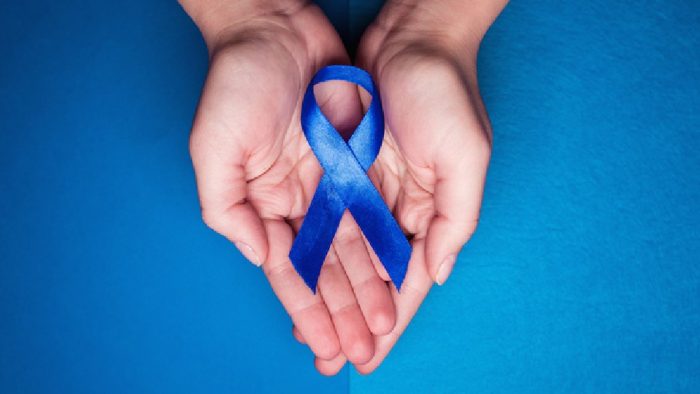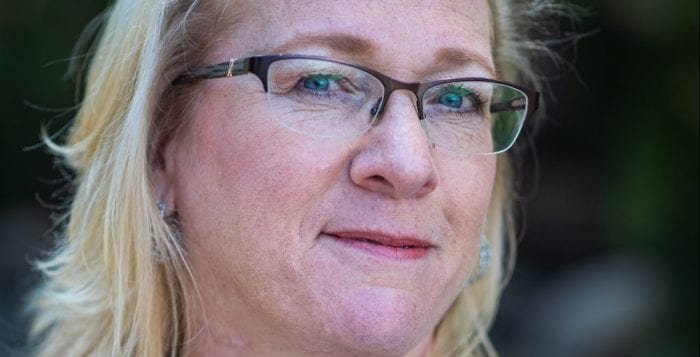
Colorectal cancer is the third most common cancer and the second leading cause of cancer death in the United States, yet it is one of the most preventable types of cancer. For 2021, the National Cancer Institute reported nearly 150,000 new cases diagnosed with approximately 53,000 fatalities. Affecting men and women of all racial and ethnic groups, colorectal cancer is most often found in people age 50 and older.
One of the biggest challenges physicians face when discussing colorectal cancer is debunking myths surrounding identifying and treating the disease. Catholic Health Gastroenterologist Kanika Kaur, MD, addressed what she commonly hears from patients.
Myth: There is nothing I can do to lessen my risk of colon cancer.
Fact: There is a lot people can do to reduce their risk of colon cancer. A diet low in red meat and processed meat, high in fruits and vegetables is very important. Smoking is a well-known risk factor for colon cancer along with many other cancers. Also, regular exercise may reduce your risk of developing colorectal cancer. The single biggest modifiable risk factor for colorectal cancer is failure to be screened. Colorectal cancers develop from pre-cancerous polyps, which are growths on the lining of the colon and rectum. Screenings detect and allow doctors to remove polyps before they become cancerous. Colonoscopy with polyp removal reduces the risk of developed colon cancer by up to 90%
Myth: Colorectal cancer is fatal.
Fact: Colorectal cancer is highly treatable, especially when detected early. More than 90% of patients with a localized cancer that is confined to the colon or rectum are alive five years after diagnosis. Sadly, about only one-third of colorectal cancers are diagnosed at an early stage. A majority of cases are identified when the disease has spread beyond the wall of the colon or rectum and to other parts of the body. This decreases the chances of the cancer being cured.
Myth: I should only have a screening if I have symptoms.
Fact: This is false. The reality is that early colorectal cancer usually has no symptoms. This is why it is important to get screened. It is recommended all men and women age 45 and older should have a screening. Those with a personal or family history of colon cancer, a history of inflammatory bowel disease and those with symptoms such as rectal bleeding are considered at high risk and may need to be screened before the age of 45. Additionally, women with a personal or family history of ovarian, endometrial or breast cancer may also need to be screened at an earlier age.
Myth: Only those with a family history of colon cancer are at risk.
Fact: Nearly three-quarters of all new colorectal cancer cancers are with individuals with no known risk factors for the disease.
Myth: Colorectal cancer affects only older, white men.
Fact: Colorectal cancer impacts men and women. Additionally, people of color are more likely to be diagnosed with colorectal cancer in its advanced stages, suggesting that they may require colon cancer screening at a younger age.
Myth: A colonoscopy is a difficult procedure.
Fact: A colonoscopy is not painful. The most unpleasant part of the procedure is the preparation that is required the day before the exam. But this is important as an inadequate prep may lead to missed findings such as polyps or a need to repeat the procedure.
Myth: Finding a colon or rectal polyp means I have cancer and need surgery.
Fact: A polyp is a pre-cancerous lesion that, if not treated, can progress to cancer. If polyps are detected early and removed before they can progress, colon cancer can be prevented. Colonoscopy and sigmoidoscopy have been shown to prevent deaths from colon cancer – a fact that has been well demonstrated over time. Most polyps are treated by removing them during the colonoscopy. Even large polyps can be removed without surgery.
More information on Catholic Health’s comprehensive colorectal cancer and digestive health services may be found by visiting chsli.org. To find a Catholic Health physician near you, please call (866) MY-LI-DOC.
About Catholic Health
Catholic Health is an integrated system encompassing some of the region’s finest health and human services agencies. The health system has 16,000 employees, six acute care hospitals, three nursing homes, a home health service, hospice and a network of physician practices.







